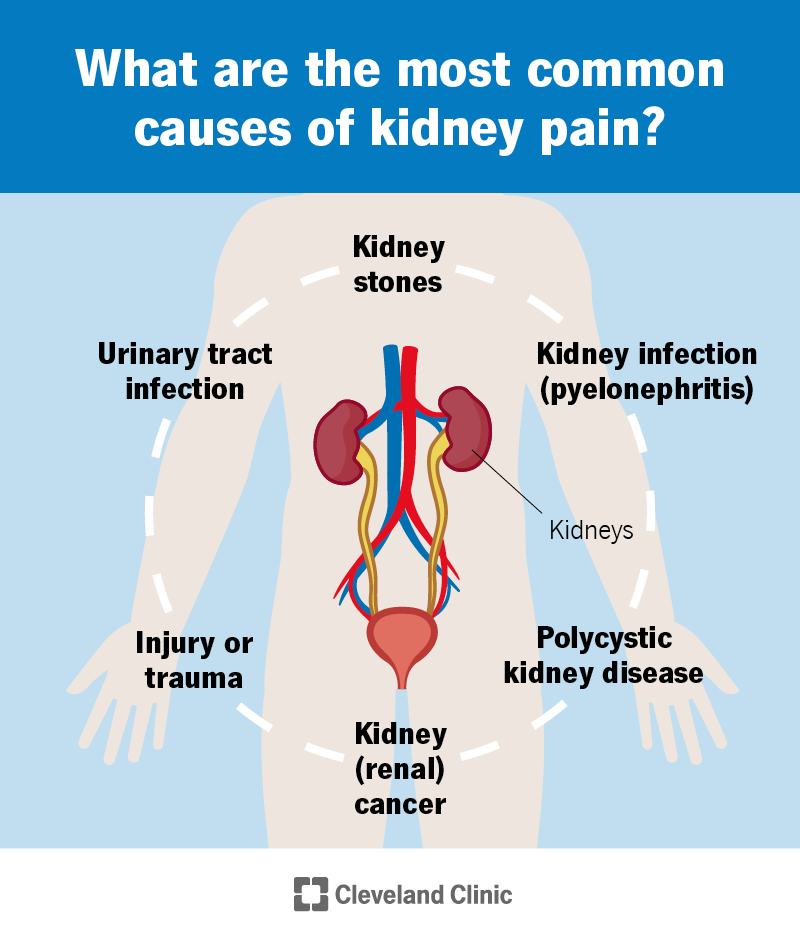Kidney Stones vs UTI: Important Info on Treatment Options and Prevention
Kidney Stones vs UTI: Important Info on Treatment Options and Prevention
Blog Article
Checking Out the Symptoms and Causes of Kidney Stones in Contrast to Urinary Tract Infections: A Comprehensive Guide
The exploration of kidney rocks and urinary tract infections (UTIs) discloses a complicated interplay of symptoms and underlying causes that warrant mindful exam. While both problems can cause hematuria, they provide distinct clinical attributes and develop from different etiological elements. Understanding the subtleties of each condition is vital for effective diagnosis and monitoring. What are the essential distinctions in their symptoms, and exactly how might these educate treatment approaches? The response to these concerns might offer crucial insights into the avoidance and treatment of these common urological problems.
Summary of Kidney Stones
Kidney rocks, additionally referred to as renal calculi, type when particular materials in the pee crystallize and aggregate, causing the development of hard deposits within the kidneys. These rocks can differ in dimension, ranging from a grain of sand to a golf ball, and can be composed of various materials, one of the most common being calcium oxalate, uric acid, struvite, and cystine. The development of kidney rocks is affected by numerous factors, including dietary practices, liquid consumption, and hereditary proneness.
Symptoms of kidney stones might consist of extreme pain in the back or side, blood in the urine, nausea or vomiting, and frequent urination, particularly as the rock moves via the urinary tract. Medical diagnosis normally entails imaging researches such as ultrasound or CT scans, along with urinalysis to identify the stone's structure.
Therapy options vary based on the size and kind of rock, in addition to the intensity of signs and symptoms (Kidney Stones vs UTI). Tiny stones might pass normally with boosted fluid intake, while bigger rocks may require clinical treatments such as lithotripsy or medical removal. Understanding the pathophysiology and danger aspects related to kidney rocks is necessary for reliable avoidance and administration
Introduction of Urinary System Tract Infections
Urinary system system infections (UTIs) are common microbial infections that influence any type of component of the urinary system, including the kidneys, ureters, bladder, and urethra. They mostly take place when germs, often from the stomach tract, go into the urinary system, leading to swelling and infection. UTIs are categorized right into 2 primary types: complex and uncomplicated. Uncomplicated UTIs typically occur in healthy and balanced individuals with regular urinary tracts, while complex UTIs might develop in individuals with underlying conditions, such as architectural abnormalities or endangered immune systems.
The prevalence of UTIs is especially higher in women than males, mainly as a result of anatomical differences, such as a shorter urethra. Threat elements include sex-related activity, particular contraceptive techniques, urinary retention, and dehydration. The diagnosis of UTIs is typically verified with urine tests, which might disclose the presence of bacteria, white blood cells, or red cell.

Signs of Kidney Stones
The pain connected with kidney stones can show up in various methods, commonly leading people to look for medical attention. Among one of the most common signs is extreme discomfort, generally local in the reduced back or side, which might emit to the abdomen or groin. This pain, commonly explained as sharp or cramping, can happen unexpectedly and might change in strength.
In addition, individuals might experience hematuria, or blood in the pee, which can range from tiny total up to noticeable staining. This symptom might be accompanied by changes in urinary practices, such as boosted regularity or necessity, as well as discomfort during peeing. Nausea and throwing up are additionally widespread, commonly arising from the body's reaction to intense pain.
In many cases, people might experience fever and cools, particularly if a secondary infection creates as a result of the blockage triggered by the rocks. On the whole, the mix of extreme discomfort, hematuria, modified urinary system patterns, and intestinal signs can supply considerable understanding into the existence of kidney stones, requiring timely medical assessment and intervention. Comprehending these symptoms is important for timely diagnosis and effective management of the problem.
Signs And Symptoms of Urinary System System Infections
Infections within the urinary system frequently offer a series of distinctive symptoms that can significantly influence day-to-day life. One of the most typical symptoms include a persistent impulse to urinate, typically gone along with by a burning visit our website sensation throughout peeing, understood as dysuria. Individuals might likewise experience increased regularity of urination, generating percentages of pee each time.
Other remarkable signs and symptoms consist of smelly or cloudy pee, which may show the existence of bacteria or pus. Sometimes, pee may show up red or pink due to the existence of blood, a problem referred to as hematuria. Additionally, individuals may experience pelvic discomfort or stress, which can better aggravate the feeling of urgency.
Systemic signs may likewise show up, such as high temperature, chills, and fatigue, especially if the infection has actually ascended to the kidneys. It is important to identify these signs and symptoms early, as unattended urinary system infections can lead to a lot more serious complications. Kidney Stones vs UTI. Motivate medical interest is encouraged when these signs are observed, permitting ideal analysis assessment and treatment to alleviate discomfort and avoid more health and wellness concerns
Reasons of Each Problem
Often, kidney stones and urinary system tract infections occur from distinct yet occasionally overlapping causes that can affect individuals in different ways. Kidney stones usually create due to metabolic factors, dietary options, and hereditary predispositions. Enhanced degrees of calcium, oxalate, or uric acid in the urine can lead to rock development. Dehydration, not enough fluid intake, and high-sodium diets can exacerbate these conditions, promoting condensation within the urinary system system.

Recognizing these unique published here causes is essential for prevention and therapy. Kidney Stones vs UTI. While way of living alterations might alleviate the danger of kidney stones, appropriate health and timely treatment of urinary system infections are necessary for minimizing their recurrence and associated difficulties
Final Thought
In summary, kidney stones and urinary system tract infections existing distinctive signs and underlying causes. Kidney rocks are defined by severe discomfort and metabolic elements, while urinary system infections mainly involve microbial infections resulting in urinary system seriousness and discomfort. Both problems can result in hematuria, their formation systems differ dramatically. try these out Comprehending these distinctions is critical for effective medical diagnosis and treatment, inevitably enhancing person results for those affected by either problem.
The expedition of kidney rocks and urinary system infections (UTIs) discloses a complicated interaction of symptoms and underlying causes that necessitate careful assessment.Urinary system infections (UTIs) are usual bacterial infections that impact any kind of component of the urinary system, including the kidneys, ureters, bladder, and urethra.Often, kidney rocks and urinary system tract infections emerge from distinct yet in some cases overlapping reasons that can influence individuals in a different way.In summary, kidney rocks and urinary system infections existing distinctive signs and symptoms and underlying causes. Kidney stones are defined by extreme pain and metabolic aspects, while urinary system infections primarily include microbial infections leading to urinary system necessity and discomfort.
Report this page